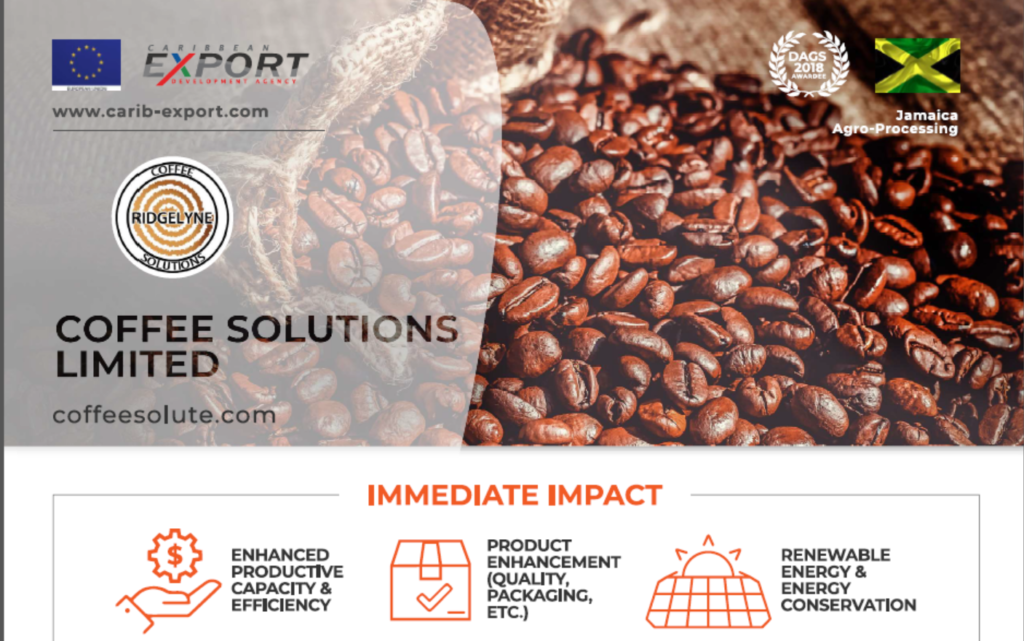Who:
Fiberpol Inc.: https://www.fiberpol.com/,
Country:
Barbados,
Sector:
Manufacturing,
IMMEDIATE IMPACT:
- Reduction in Energy Costs/Consumption;
- Penetrated New Export Markets;
- Reduced Operational Costs and/or Wastage;
MID-TERM IMPACT:
- Anticipated Increase in Exports;
- Increase in staff – 1;
- Increase in revenue – Approx. US$400,000 in 2020;
- Enhanced Productive Capacity and Efficiency – 15%;
- Reduced Operational Costs and/or Wastage;
Profile:
Fiberpol Inc. has been operating in Barbados for over thirty (30) years and specializes in the custom manufacturing of kitchen countertops and cabinetry for the construction, residential and hospitality industries.
The Issue:
Fiberpol Inc. sought to increase production capacity of its main product lines namely kitchen cabinets and other cabinetry to enable expansion into to new markets, as the company had reached a point of market saturation in Barbados. The company was also challenged with high costs and extensive amount of time needed to ship traditional card templates of its kitchen to export markets.
Assistance Received:
Fiberpol Inc. received a financial grant via the Direct Assistance Grants Scheme (DAGS) funded by the European Union under the 11th EDF Regional Private Sector Development Programme. The funds were used to acquire computer numerical control (CNC) equipment/technology to enable 3D manufacturing; digitize company processes; enhance productive capacity and improve health and safety of the workshop.
Immediate Impact/Outcomes:
Immediately after the purchase and implementation of the CNC equipment, Fiberpol Inc. saw a reduction in operational costs and wastage. The digital technology created digital models of the jobs that can be edited online, emailed, and read by the CNC equipment used in manufacturing. The digital template assisted Fiberpol to decrease job cost by reducing material input and cost of transporting physical templates via ocean or air. This has reduced the average job timeline by 2-3 weeks, thus lowering energy costs and consumption.
Templating and manufacturing are more accurate, less labour intensive and can be done remotely with less challenges. The cost per counter and wastage is reduced and the process of taking measurements on site and cutting the countertop shapes is now done digitally. As a result of these enhanced processes Fibrepol has been able to expand further into the export market and have seen export sales increase by 80%. The successful implementation of the DAGS project also enabled the creation of an additional job role of an Equipment Engineer.
Medium-term Results and Impact:
In the medium-term, revenue increased between January and November 2020. Also, the company’s productive capacity and efficiency was enhanced by 15% and the new machinery facilitated reduced wastage and lower cost, per counter (unit) in production.
The project also had a positive impact on the environment. Fiberpol Inc. equipment/machinery upgrade (CNC Technology), acquired through the DAGS, has completely digitised its production process, and eliminated the need for constructing kitchen models using cardboard. This action has significantly reduced the non-recyclable waste that the company generates and therefore, it has had a positive impact on the environment. In addition to St. Kitts and Nevis, the company is also now exporting to Dominica and the British Virgin Islands.
The COVID-19 pandemic caused a slowdown in business, as regional projects were delayed or cancelled, due to travel restrictions. This impacted the company’s sales and gross profits for 2020. However, the efficiency savings gained, through the new technology, have reduced the overall financial impact of COVID-19 on Fiberpol Inc.
“The Direct Assistance Grants Scheme (DAGS) has been exceptionally helpful in assisting Fiberpol’s process for going digital in its kitchen manufacturing facility. From initial application to final sign off, the process was well supported and structured with knowledgeable and helpful staff always ready to assist and endless resources to cover any questions. Fiberpol Inc. is now equipped to work on projects seamlessly in any Caribbean territory using cutting-edge digital CNC technology for templating, programming and manufacturing kitchens. We are very appreciative to the Caribbean Export Development Agency and European Union for all they are doing to assist businesses in the region.†Bill Emptage, Director


